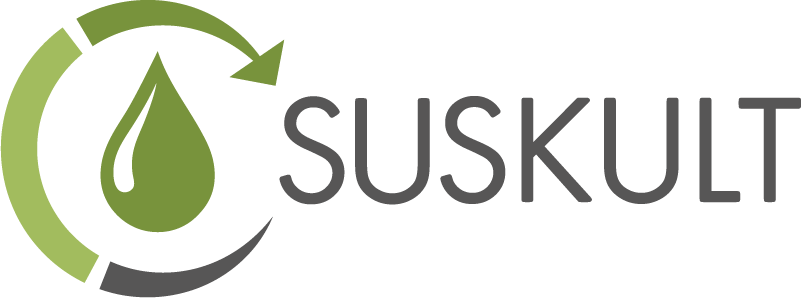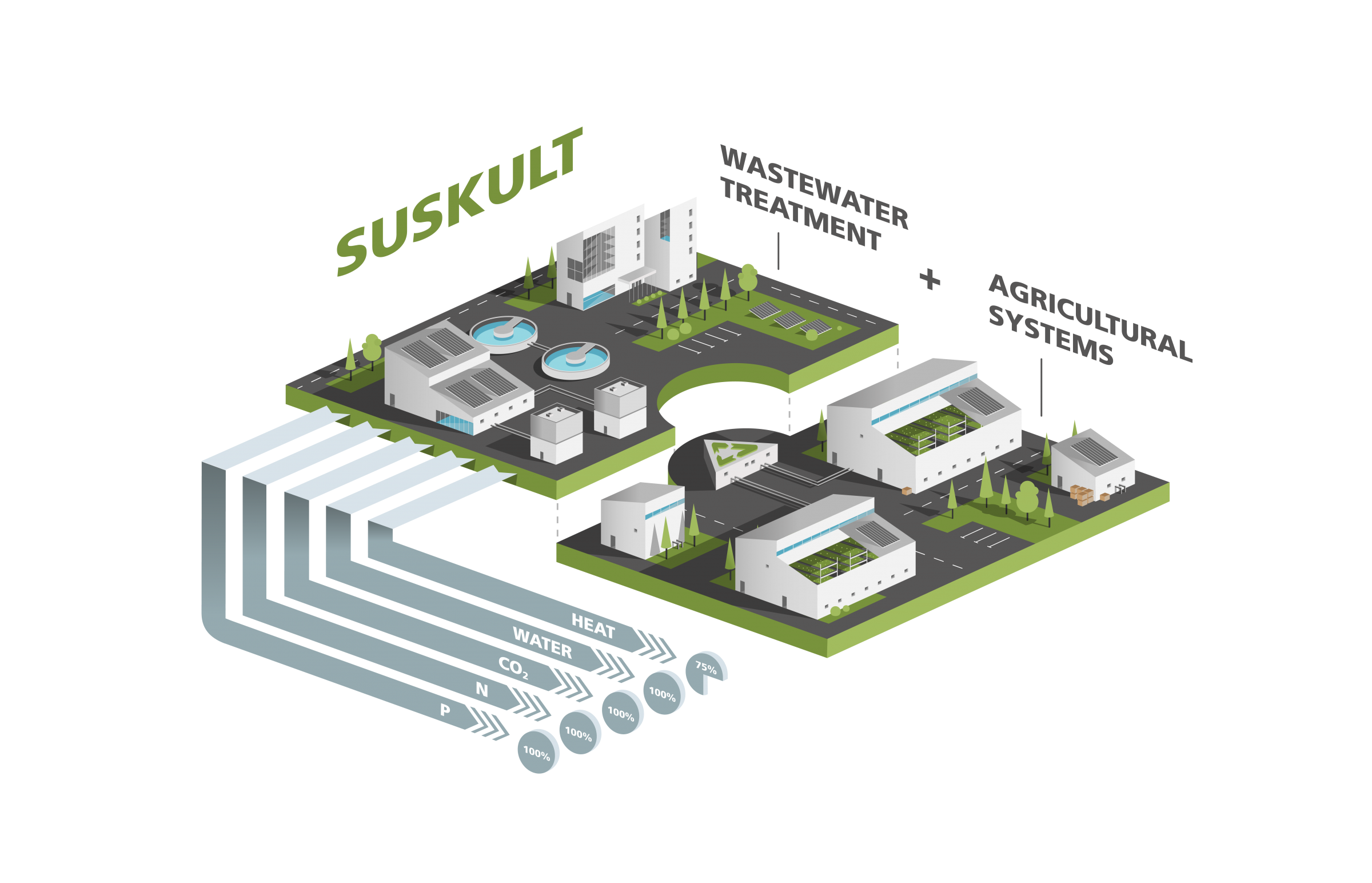SUSKULT
Development of a sustainable cultivation system for the food supply of resilient metropolitan regions
Variety of challenges faced by the Agricultural Systems of the Future
The challenges faced by current agrosystems could hardly be more complex and multilayered: Climate change is causing increasingly frequent extreme weather events and the global rise in temperatures is leading to worsening water shortages in many regions around the world. At the same time, agriculture and food production as such generates up to a third of global greenhouse gas emissions, making a significant contribution to climate change. A growing world population and the mega-trend of urbanisation demand increasing agricultural yields, which also requires more and more chemical fertilisers. In view of finite phosphorous deposits and the nitrite contamination of soil and water, supplying growing metropolitan regions with fresh, sustainably produced foods is a future challenge.
SUSKULT – regenerative, local, closed cycle
The SUSKULT joint project is working on an innovative, closed cycle agrosystem that overcomes current and future challenges. The goal is to develop and establish an innovative hydroponics-based food production system, in which plants grow and thrive within the framework of indoor cultivation using nutrient solutions. The “SUSKULT cropping system” obtains the required resources as well as heat and water directly from a wastewater treatment plant! It is a downright ideal source of raw materials. All components required for plant production can be found here, notably phosphorous, potassium, nitrogen and CO2. Due to the growth of urban areas, wastewater treatment plants are no longer located far away near the city limits or even outside them, but increasingly in the centres of our cities. Horticultural production directly in the urban space, linked to the wastewater treatment plant as a supplier of raw materials, leads to greater regionalism and thereby enables local, sustainable agriculture.
“NEWtrient®-Center” as the sustainable, reliable resource supplier of the future
SUSKULT pursues the vision of turning conventional wastewater treatment plants into “NEWtrient®-Centers” by the middle of the century, supplying all the nutrients required for horticultural projection in the urban setting in addition to clean drinking water. The development of new and innovative treatment techniques that selectively extract the available resources and transform them into high-quality, safe nutrients for cycle-based agricultural production of the future forms the basis.
Individual components are to be selectively implemented in a demonstration plant to be constructed on the site of the Emschermündung wastewater treatment plant between Dinslaken, Duisburg and Oberhausen. In the long term, the success of the SUSKULT vision depends on whether associated change processes in Germany’s national economy to establish a bio-based, sustainable and cycle-oriented industry and society are successful. The environmental and system analysis will investigate the potential of SUSKULT as a driver for the development of a sustainable Agricultural System of the Future in Germany.
The SUSKULT consortium is defined by a high level of interdisciplinarity and transdisciplinarity along the entire value chain, from natural science/technical specialist disciplines to social sciences to the food trade. Close practical ties are also established by an advisory board providing technical and strategic support for the project.
Further information is available here.
Coordinator
Dipl.-Ing. Volkmar Keuter
Fraunhofer Institute for Environmental, Safety, and Energy Technology UMSICHT
Osterfelder Str. 3
46047 Oberhausen
Tel.: +49(0) 208 8598-1450
E-Mail: volkmar.keuter@umsicht.fraunhofer.de
www.suskult.de
Project partners
Giessen University
Dr. rer. pol. Sandra Schwindenhammer (stellv. Koordinatorin SUSKULT)
NX-Food GbmH
Fabio Ziemssen
Montanuniversität Loeben
Prof. Dr. mont. Markus Ellersdorfer
Blue Foot Membranes GmbH
Dipl.-Biol. Ulrich Brüß
German Research Center for Artificial Intelligence
Dr. Ansgar Bernardi
Pacelum GmbH
Stefan Kwetkat
Emschergenossenschaft / Lippeverband K.ö.R
Dr. Linh-Con Phan
Rewe Group
Daniel Wending
Helmholtz Centre for Environmental Research
Prof. Dr.-Ing. Thorsten Reemtsma
Ruhrverband K.ö.R.
Dr.-Ing. Yvonne Schneider
Hochschule Osnabrück University of applied science
Prof. Dr. rer. hort. Andreas Ulbrich
TU Kaiserslautern
Prof. Dr.-Ing. Heidrun Steinmetz
Research Institute for Regional and Urban Development
M.Sc. Martin Schulwitz
Yara GmbH & Co KG
Dr. Dejene Eticha

